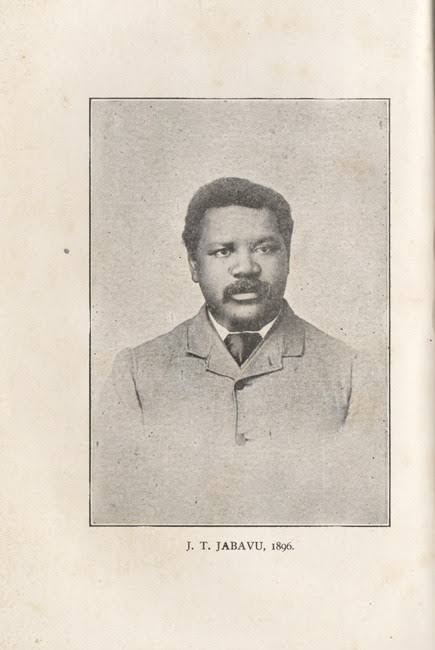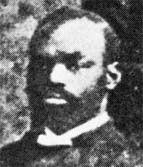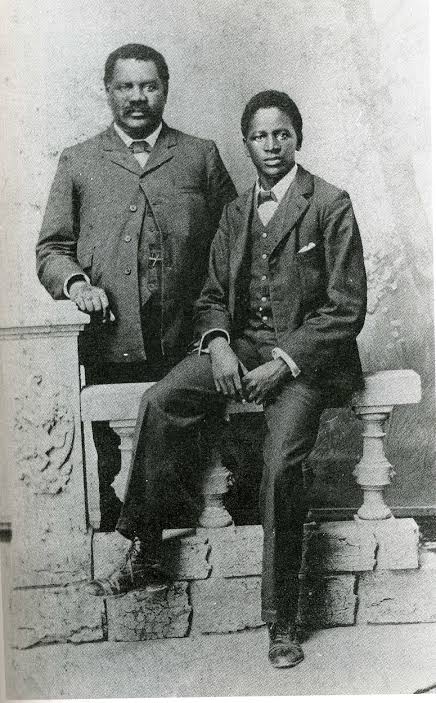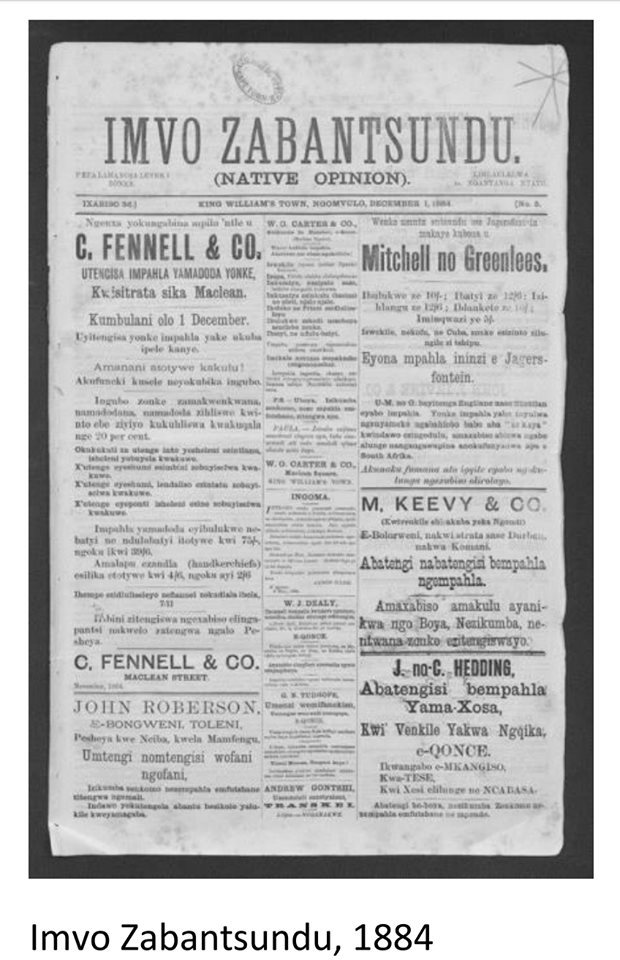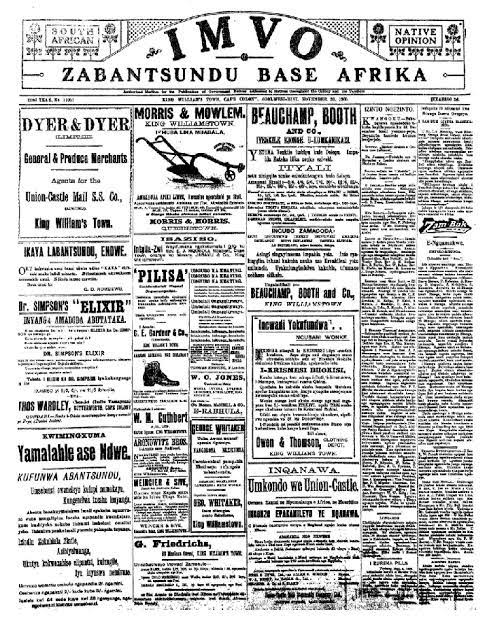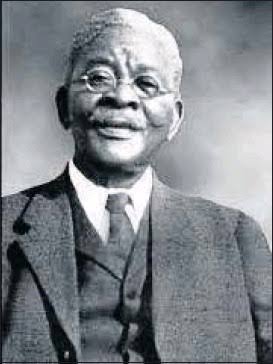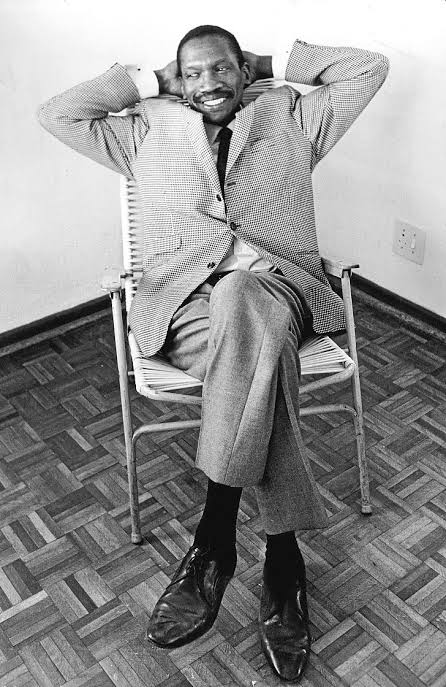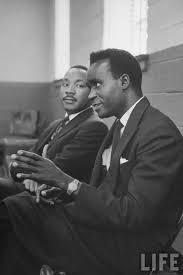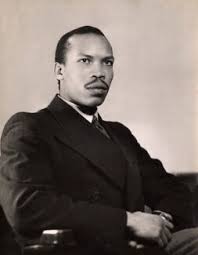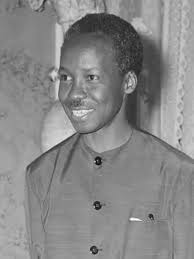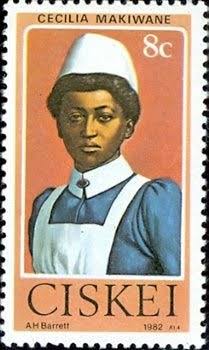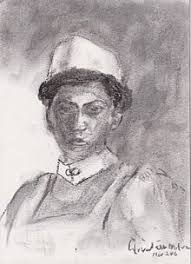Journalist, teacher and co-founder of the University of Fort Hare, John Tengo Jabavu was born on this day in 1859. This year will mark the 100th anniversary of his death. He was 65.
Jabavu was born eTyotyora near the Healdtown mission station where his parents attended church. He was born into a Methodist family. He would begin his editing career with Isigidimi Sama Xhosa in 1881 succeeding his future mkhozi Elijah Makiwane (excuse the blurred photo).
Speaking of umkhozi I want to insert some history on Thandiswa Florence Makiwane the woman who would be JTJ's daughter-in-law and Noni Jabavu's mother. These two families are a writing and publishing dynasty of which Noni is its crown jewel. But Florence is often glossed over.
She is known mostly for founding and carrying out her work through the Zenzele Women's Self-Improvement Association. But she is also the first Black woman essayist. Her writing was strongly opposed to the some of her husband's writings re the realities of Black women.
While writers like DDT expressed disdain for isthembu. Florence theorized around the ways women built community and partnership in radical ways within this form of marriage between one another. She wrote extensively on various women's formations within and outside church.
Among the encounters JTJ had with racism was when he tried to enroll his son Davidson Don Tengo Jabavu (also a writer, and founder of a number of organizations including the All Africa Convention) at Dale College eQonce. They refused so DDT was sent to Quaker College in Wales.
In 1884 Jabavu founded the Imvo Zabantsundu which became the first newspaper founded by a Black person previous publications like Isigidimi were founded by churches. This was the first independent and Black owned newspaper. Among its future editors was John Langalibalele Dube.
Utata fell out with some intellectuals who later formed the African National Congress because of his support of the Afrikaner Bond and his speaking out against a Black person (WB Rubusana) running for the Cape Provincial Council. WB ended up winning those elections in 1910.
But uTata pushed on the education front. At the time most Black people were studying abroad in Britain or the USA (his own son and daughter-in-law had been educated overseas). The first doctors were educated in Scottland and Chicago. This worried the Union government because
A lot of the graduates were returning more radicalized than when they had left for example Charlotte Maxeke. So JTJ proposed the founding of a university for Black people and also insisted on it enrolling Black women. He also rallied community support. Abantu donated generously.
Lol they allowed the founding of a Black University thinking they would produce pacified Black graduates forever. South Africa's enemy number 1 is one of UFH's alumni.
JTJ's Fort Hare was also home to the first presidents of some of our independent states: President Kaunda, President Khama and President Nyerere.
Also want to add (since we're talking about the Jabavu-Makiwane's) it was this month in 1908 that Cecilia Makiwane became South Africa's first Black registered Nurse. She and Florence were sisters. Unfortunately there are no accessible photographs of her.
South African script writers and filmmakers? This could be a period piece.

 Read on Twitter
Read on Twitter